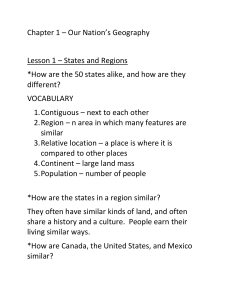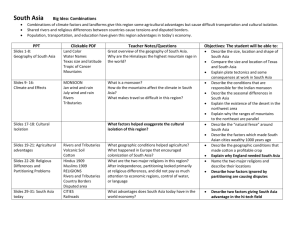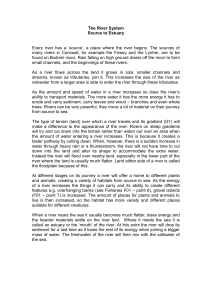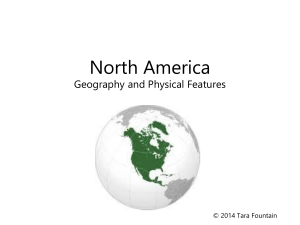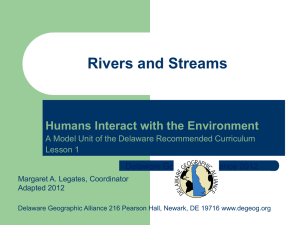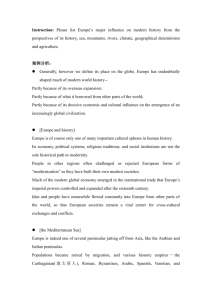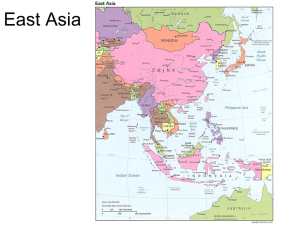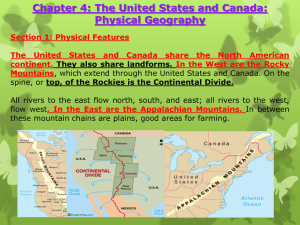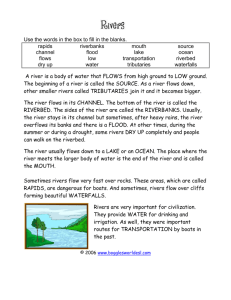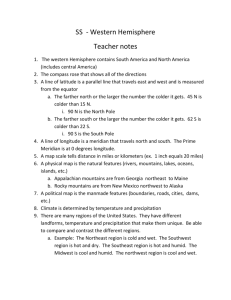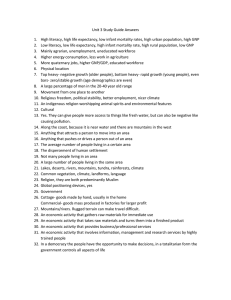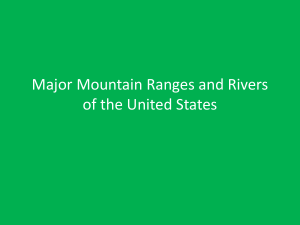United States and Canada Introduction
advertisement
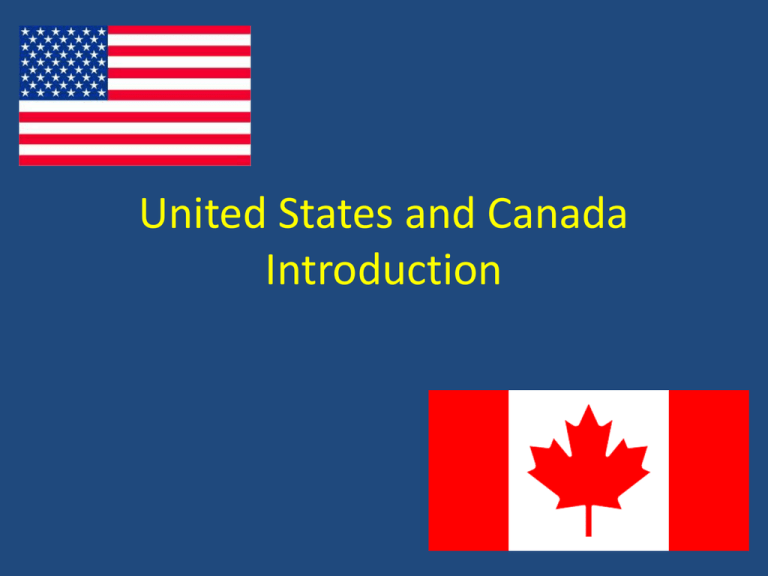
United States and Canada Introduction Colony • A territory separated from but subject to a ruling power. Annex • To formally incorporate into a country or state the territory of another. Cede • To transfer or give up. Civil War • A conflict between opposing groups of citizens of the same country Industrial Revolution • The shift from human power to machine power. Which cities shown on the map are located in areas that were once under Spanish rule? • • • • • San Antonio Huston Dallas Phoenix Miami How are the histories of Canada and the United States similar and different? • The US and Canada are similar because: 1. Both had ties to England 2. Both eventually ended up having a democratic government 3. Both expanded westward to the Pacific Ocean 4. Both countries experienced an industrial revolution • The US and Canada are different because: 1. The French settled in Canada, and some of Canadians still speak French 2. The United States fought a Civil War over slavery Continental Divide • A boundary on high ground that separates rivers flowing to opposite sides of a continent • The Continental Divide in the United States is in the Rocky Mountains Drainage Basin • Areas of land that are drained by major rivers and their tributaries Tributaries • Rivers and streams that carry water into major rivers In the central United States which rivers are tributaries of the Mississippi River? • Ohio River • Missouri River • Arkansas River Has erosion had a greater effect on the Rocky Mountains or the Appalachian Mountains? • The Appalachians are much more worn down over time. • They are rounded and much lower in elevation than the Rockies. Rain Shadow • The area of reduced rainfall on the leeward side of high mountains Which cities on the map are located in the humid subtropical climate zone? • Washington DC • St. Louis • Dallas Why is Canada’s climate generally colder than that of the United States? • It is located further north of the Equator How can the colder weather effect individuals and businesses? • People are more likely to have indoor interests in the colder areas • Ski Resorts may make good tourist attractions • Businesses are more closely located to one another to avoid travel in bad weather Which ecosystems span the boarder of the US and Canada? • Mixed Forests • Coniferous Forests • Mid-Latitude Deciduous Forests • Temperate Grassland How do you think the National Park System affects natural ecosystems in the United States? • It helps to protect them from development • It also bring more humans into interact for better or worse with them Literacy • The ability to read and write Suburb • The residential area around the outside of a city Which region in the United States has the highest population density? • The northeast coast line • New York, Boston, Philadelphia, Washington D.C. Why so you think most of Canada’s population lives near the boarder? • It has a mild Climate Standard of living • A measurement based on available education, housing, health care, and nutrition What resources exist on the Atlantic Coast? • • • • • Coal Phosphates Uranium Silver copper Why is there little economic activity in parts of Canada and the United States? • The climate is so hostile that little population lives their and therefore there is no chance for business dealings How do you think the Great Lakes might be effected by the economic activities around them? • The pollution from manufacturing plants might cause a problem for the lakes • They maybe used to irrigate crops Per Capita • Per person What energy resource is used to produce the most electricity in Canada? • Water What energy source is used to make the most electricity in the United States? • Fossil Fuels Does the U.S. or Canada use more petroleum? How does the nation make up the difference? • The United States • It exports more to other countries Does the United States or Canada use more electricity per person? • Canada • Because Canada has a cooler climate and some areas seasonal changes Which country the U.S, or Canada depends more on non-renewable resources? • The United States • They must import a lot of these resources to keep up with their energy needs Why would governments want to protect natural resources? • For future use by its citizens • So that they do not have to import from other counties How might cool climate and greater distances between population centers make the per capita energy use higher? • Higher heating bills • More dark hours • Further to drive for needs
